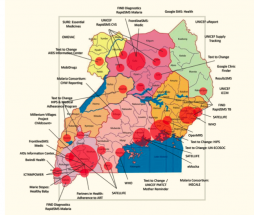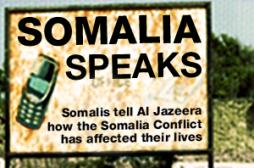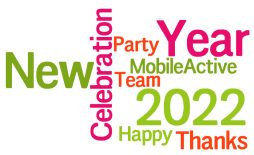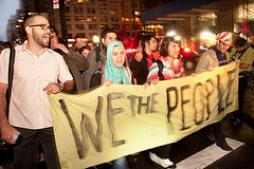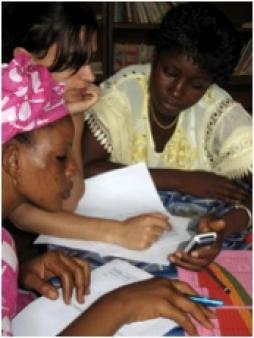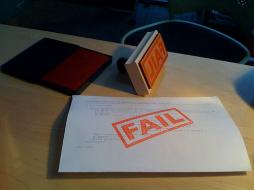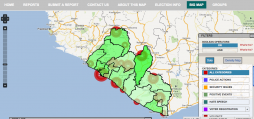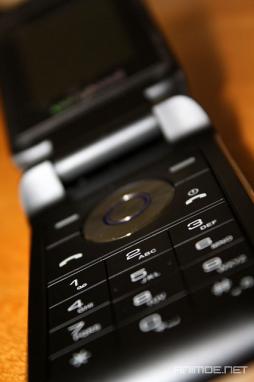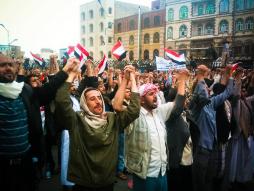Posted by AnneryanHeatwole on Jan 05, 2012
Scaling Up Mobile Health: Elements Necessary for the Successful Scale Up of mHealth in Developing Countries data sheet 1724 Views
Abstract:
Despite the strong promise demonstrated by mHealth tools and applications, the current landscape of mHealth development in developing country contexts is characterized by a proliferation of unsustainable pilot projects that often expire once initial funding is exhausted. For example, in Uganda alone there were 23 mHealth initiatives in 2008 and 2009 that did not scale up after the pilot phase. In India, there were over 30 mHealth initiatives in 2009 that did not go beyond the pilot phase.
Current policy environments, business models and funding schemes around mHealth have fueled the proliferation of pilot projects without enabling them to scale up in a meaningful, replicable way. An additional, and perhaps most significant, obstacle to improving and scaling the implementation of mHealth initiatives is the lack of monitoring and evaluation (M&E) and use of meaningful, consistent indicators and rigorous evaluation methods.
Given the obstacles within the current landscape, this white paper was commissioned by Advanced Development for Africa (ADA) to assess current implementations of successful mHealth programs in developing country contexts. The objective is to identify elements necessary for successfully scaling up, with the aim of highlighting best practices and specific programmatic, operational, policy and global strategy recommendations that can promote scale up of mHealth.
Profiled in this report are several select mHealth programs that have been piloted and are currently in the scale up phase, and have proven enough success that they should be considered as models for other initiatives to follow. As the following case studies will demonstrate, through more accurate and timely data, disease surveillance, decision support and health information management, mHealth can effectively inform policy-making and planning within healthcare systems and improve the health of local communities, particularly remote populations. The scale up of mHealth within national health agendas should be supported by all departments within the Ministry of Health and across other relevant ministries and agencies including Telecommunications. Both internal stakeholders, such as end-users and beneficiaries, and external stakeholders, such as mobile network operators and donors, should be engaged in the planning and business model design and scalability assessments. The primary goal of this white paper is to provide evidence and recommendations that will allow mHealth initiatives to better plan their own scale up beyond successful pilot phases.
Posted by AnneryanHeatwole on Jan 05, 2012
What makes a mobile health project successfuly grow? What causes so many m-health projects to wither or fail? And what can practitioners learn from existing m-health projects to build growth into programs for the future? "Scaling Up Mobile Health: Elements Necessary for the Successful Scale Up of mHealth in Developing Countries" examines these questions by looking at nine case studies on successful mobile health projects and pulling out the key strategies that led to successful growth.
The case studies cover a wide array of health issues, including maternal and early childhood health (ChildCount+, Pesinet, Project Mwana, Tele Salud), medication stocking and verification (mPedigree, SMS for Life), disease outbreak monitoring (mTRAC), and HIV/AIDS awareness (SMS for Health, Txt Alert); the report details how the projects deal with issues like local buy-in, scale, and sustainability. "Scaling Up Mobile Health" is broken up into three sections: case studies, best practices, and recommendations for future m-health projects.
The main lessons from the report focus on what has worked within the highlighted case studies and what is needed for future m-health projects to be successful. Below is a summary of the key points and takeaways from the report:
Posted by MelissaUlbricht on Jan 03, 2012
In the Horn of Africa, Somalia makes headlines but often only because of drought, famine, crisis, and insecurity. Al Jazeera recently launched Somalia Speaks to help amplify stories from people and their everyday lives in the region - all via SMS.
Somalia Speaks is a collaboration between Souktel, a Palestinian-based organization providing SMS messaging services, Ushahidi, Al Jazeera, Crowdflower, and the African Diaspora Institute. Al Jazeera's Soud Hyder said in an interview with us, “We wanted to find out the perspective of normal Somali citizens to tell us how the crisis has affected them and the Somali diaspora.”
The goal of Somalia Speaks is to aggregate often-unheard voices as well as from the Somalia diaspora by asking via text message: How has the Somalia conflict affected your life? Responses are translated into English and plotted on an online map. Since the launch, approximately 3000 SMS messages have been received. Here is just one example:
I was born in the city of Wanlaweyn, and some of the people there are destroying things. I am poor now.
For Al Jazeera, Somalia Speaks is also a chance to pilot and test innovative mobile approaches to citizen media and news gathering. Visit the Mobile Media Toolkit to read the entire case study and learn more.
| Using SMS for Stories from Somalia: New on the Mobile Media Toolkit! data sheet 2350 Views |
| Global Regions: |
|
| Countries: |
Somalia
|
Posted by AnneryanHeatwole on Jan 02, 2012
Welcome to a very mobile 2012! Last year mobiles were at the forefront of protests, citizen journalism, disaster recovery and relief, environmental issues, and more – and brought up questions of security and privacy along the way. Check out our new page dedicated to MobileActive's 2011; the Year in Review pulls together our best content from the year in one easy location.
From the launch of The Mobile Media Toolkit (a great resource for reporters, citizen journalists, and media organizations that want to use mobile technology in their work) and our increased focus on security and privacy with the SaferMobile initiative, we've set the groundwork for big changes in 2012.
Keep in contact with MobileActive through Twitter, Facebook, our discuss list, or our newsletters at MobileActive.org and (for all of you reporters and citizen journalists) at the Mobile Media Toolkit. We hope that everyone has a safe and happy New Year, and we are excited for what 2012 holds. Thanks for being part of the MobileActive community!
Posted by KatrinVerclas on Jan 02, 2012
In 2011, the world population crossed the seven billion mark and the number of mobile subscriptions surpassed six billion. As mobile phones have become part of everyday life around the world, MobileActive.org celebrates the New Year by looking at all the ways mobiles have been used in social change and development work.
MobileActive.org launched two new initiatives this year, The Mobile Media Toolkit and SaferMobile, which both focus on using mobile technology securely and safely. The revolutions in the Middle East showed that 2011 was a year of change. As demonstrations spread through more than a dozen countries, mobile phones were a key source of communication among activists and protesters. The wide-spread use of mobile technology, combined with the use of repressive surveillance tech, brought up more than ever issues of security and privacy for activists, journalists, and citizens who want to use mobile phones to safely capture and share information.
Posted by MelissaLoudon on Dec 22, 2011
Vibe burst onto the scene following reports that protesters were using it to coordinate with each other at the recent Occupy Wall Street demonstrations and camps.
As a smartphone app for anonymous broadcast messaging, Vibe is going after an important idea. In fact, it’s been promoted as an anonymous version of Twitter. Anyone with the app can post - there are no accounts - and users are able to limit the lifetime of the messages (from a few minutes to a few days) and the location to which they are broadcast (from a few meters to anywhere).
Vibe is clearly a useful tool. Some of the ways it has apparently been used include asking anonymous questions at a conference, and communicating with neighbours about local events. The ‘anonymity’ of not having to create an account may be perfectly adequate for these situations. However, when it comes to its use by activists - where it is being promoted as an appropriate tool for people with serious security implications should their identify be revealed - we need to delve deeper into promises of anonymity.
In the case of Vibe, our analysis revealed some serious concerns. Some of these have come up in other reviews as well.
Posted by EKStallings on Dec 20, 2011
Design and Usability Testing of an mHealth Application for Midwives in Rural Ghana data sheet 2634 Views
Abstract:
Midwives in Ghana provide the majority of rural primary and maternal healthcare services, but have limited access to data for decision making and knowledge work. Few mobile health (mHealth) applications have been designed for midwives. The study's purpose was to design and test an mHealth application (mClinic) that can improve data access and reduce the reporting burden for midwives at the Millennium Villages Project site in Ghana.
From the design science field, the Information Systems Research Framework guided this study through two research cycles: 1) Relevance, and 2) Design. The first phase of the Relevance Cycle took a user-centered approach to assess the people, organizations, and technology of the midwives’ environment through participant observation, contextual inquiry, and interviews. In the second phase, structured requirements specification was used to categorize the data into goals, system qualities, and constraints. From the categorized data, use cases were developed for patient registration, antenatal care, malaria, family planning, and referrals. Use cases then informed the development of functional requirements. In the Design Cycle, we first used functional requirements for patient registration and malaria to develop the mClinic prototype as part of a coded-in-country initiative. Next, we examined usability of the mClinic prototype by conducting field testing, heuristic evaluation, and usability surveys. Additionally, low-fidelity prototyping was used to determine applicability of the other use cases to the midwives’ environment.
Midwives reported inability to access critical data, high patient loads, and extensive reporting requirements. Low technical self-efficacy and inadequate infrastructure were identified as barriers to implementation. Heuristic evaluation noted issues related to hardware selection, workflow, and security. Midwives ranked the tool as useful in the usability survey; however, ease-of-use rankings were neutral. Interviews indicated this was related to low technical self-efficacy. Applicability checks found support for touch-entry prototypes over those that included lengthy forms or text-entry.
Posted by admin on Dec 19, 2011
A Participatory Designed M-Agriculture Solution for Rural Livelihood Promotion data sheet 2099 Views
Author:
Dr.Rizvi, S.M. Haider, Dr. Andy Dearden
Abstract:
The paper is based on the findings and experiences of the Rural e-Services Project in India (ReSPI) which resulted in designing of Knowledge Help Extension Technology Initiative (KHETI).
ReSPI was an action research project to bridge the socio-economic divide digitally. The project has demonstrated that a right approach with appropriate mix of methodologies and social context could lead the designing of Information Communication Technology (ICT) solutions.
In the after math of the project and development of KHETI Technology, claims could be made that designing of Information Communication Technology solutions are very much possible with so called ‘less privileged groups’ using participatory interaction design methodologies and treating users as co-designers.
The paper describes strengths and challenges in the participatory designing processes of KHETI as an M-Agriculture system and examines how it addresses the problems of local poor farmers by recognising their socio-economic realities.
Posted by EKStallings on Dec 19, 2011
Beyond ICT4D: New Media Research in Uganda data sheet 1815 Views
Author:
Balunywa , Ali, Guido van Diepen, Wouter Dijkstra, Kai Henriquez, Ben White
Abstract:
This paper is a collection of five ethnographic reports examining the role of ICT in Uganda. The first is not particulalrly mobile focused and looks at how those who have access to internet in Uganda use it. The second report is about the ways ICT is changing print media. The third report focuses on the the opportunities ICT present for civil society and non-governmental groups. The next report outlines the way the ICT sector in Uganda was developed. The last report examines ways that ICT may be used in government accountability.
Posted by AnneryanHeatwole on Dec 19, 2011
Mali has one of the highest infant mortality rates in the world. There are roughly 111 deaths for every 1000 live births in the country and the under-5 mortality rate is 191 out of every 1000 children. The need for early detection of diseases and stronger local health structures led to the creation of Pesinet, a non-profit that uses mobile technology to provide regular health checkups and affordable health insurance for young children in Mali's capital, Bamako.
Roughly 600 children are currently enrolled in the program in the neighborhood of Bamako Coura, under the care of four Pesinet agents (each covering around 150 children). Pesinet combines both early warning systems and insurance. Families pay 500 CF a month for each enrolled child; the payments cover doctor examinations and half the cost of any medications the child needs if he or she gets sick.
Enrolled children are tested weekly for symptoms of illness such as fever, cough, diarrhea, low weight, or vomiting by community health workers who enter data from each visit into a custom-designed Java application on their phone. The data is sent via GPRS to an online database. Doctors at local community health centers monitor the patient data for sudden changes in health. If changes occur, the community health workers receive an alert on their phones and then go back, in turn, to alert the family that the doctor needs to give the child a checkup.
| Pesinet: Mobile Monitoring and Micro-Insurance for Children in Mali data sheet 3306 Views |
| Countries: |
Mali
|
Posted by EKStallings on Dec 19, 2011
SMS Engagement in Pakistan: A Practical Guide for Civil Society, the Humanitarian Sector, and Government data sheet 2503 Views
Author:
Linton Williams, Jim, Alex Gilchrist
Abstract:
Mobile phones are approaching ubiquity in Pakistan. Allowing low cost access to community members across class, linguistic and geographical boundaries, the mobile phone can be an effective tool to communicate with ordinary people in Pakistan, as well as to learn from them, and even collaborate with them. This guide provides a research-driven and practical guide for using SMS to do so. It is intended for both Pakistani and international institutions, whether in government, civil society or the humanitarian sector. It represents the findings of its authors only, and, it is hoped, is the first draft of a collaborative document, to which many of its readers might contribute.
This document is intended to provide an understanding both of the range of technical options available for SMS-based communications, and of the ways in which campaigns should be conceived and executed in light of the scope and character of both SMS use and phone use in Pakistan.
It also makes the argument that SMS provides an opportunity to do more with mobilebased communications than simple announcements and polling, useful activities though they are. It argues that the conversational nature of SMS, in Pakistan and elsewhere, allows
Posted by EKStallings on Dec 19, 2011
Working Towards a Deeper Understanding of Digital Safety for Children and Young People in Developing Nations data sheet 1340 Views
Author:
Gasser, Urs, Colin Maclay, John Palfre
Abstract:
This exploratory study is a first output of an ongoing collaboration between the Berkman Center for Internet & Society at Harvard University and UNICEF. It is intended as a contribution towards building a deeper understanding of children’s safety in a digital context in developing nations.
More specifically, the objectives of the paper are threefold: First (and foremost), it seeks to raise awareness about issues related to digital safety for youth in developing nations. Second, it aims to provide a tentative map of these issues and give insights into the current state of the respective research based on an exploratory literature review. Third, the paper seeks to outline the contours of a research framework through a series of working hypotheses that might inform subsequent research efforts on these issues by connecting efforts in developing and industrialized nations.
Posted by AnneryanHeatwole on Dec 16, 2011
FailFaire – where it's okay to admit the mistakes. MobileActive hosted another round of FailFaire, bringing together practitioners, developers, donors, and students involved in the use of technology for social change development to discuss what's usually swept under the rug – project failure. The event is an open space to discuss those projects that went wrong in our field fostering a sense of learning from mistakes and knowledge sharing. The latest FailFaire in New York brought together eight practitioners to present their failed projects and what they learned along the way. Take a look at this FastCompany article about the NYC FailFaire for some background.
So, here we bring you...
Posted by EKStallings on Dec 16, 2011
ICTs for Agricultural Extension: A Study in the Indian Himalayan Region data sheet 992 Views
Author:
Kameswar, V.L.V, Devash Kishore, Vinita Gupta
Abstract:
This paper reports on the availability, use and information seeking behaviour of a farming community with specific reference to Information and Communication Technologies (ICTs). It fills a research gap by examining what people do with a medium when they have access to it, rather than looking at barriers surrounding the use of ICTs and digital divide issues arising due to differential access and capabilities. The study was conducted in a state in North India, and provides insights into intentions and factors surrounding the use of various media by farmers. It highlights the socio-cultural context within which information seeking and use
Posted by EKStallings on Dec 16, 2011
mHealth: New Horizons for Health Through Mobile Technologies data sheet 1246 Views
Author:
Mechael, Patricia, Nadi Kaonga, and Hima Batavia, Lilia Perez-Chavolla
Abstract:
For the first time the World Health Organization’s (WHO) Global Observatory for eHealth (GOe) has sought to determine the status of mHealth in Member States; its 2009 global survey contained a section specifically devoted to mHealth. Completed by 114 Member States, the survey documented for analysis four aspects of mHealth: adoption of initiatives, types of initiatives, status of evaluation, and barriers to implementation. Fourteen categories of mHealth services were surveyed: health call centres, emergency toll-free telephone services, managing emergencies and disasters, mobile telemedicine, appointment reminders, community mobilization and health promotion, treatment compliance, mobile patient records, information access, patient monitoring, health surveys and data collection, surveillance, health awareness raising, and decision support systems.
The survey shows there is a groundswell of activity. The majority of Member States (83%) reported offering at least one type of mHealth service. However, many countries offered four to six programmes. The four most frequently reported mHealth initiatives were: health call centres (59%), emergency toll-free telephone services (55%), managing emergencies and disasters (54%), and mobile telemedicine (49%). With the exception of health call centres, emergency toll-free telephone services, and managing emergencies and disasters, approximately two thirds of mHealth programmes are in the pilot or informal stage.
The survey results highlight that the dominant form of mHealth today is characterized by small-scale pilot projects that address single issues in information sharing and access. There were only limited larger mHealth implementations (primarily supported by public-private partnerships). While it is anticipated that large-scale and complex programmes will become more common as mHealth matures, strategies and policies that integrate eHealth and mHealth interoperability into health services would be wise. mHealth is no different from other areas of eHealth in its need to adopt globally accepted standards and interoperable technologies, ideally using open architecture. The use of standardized information and communication technologies would enhance efficiency and reduce cost. To accomplish this, countries will need to collaborate in developing global best practices so that data can move more effectively between systems and applications.
Posted by KatrinVerclas on Dec 14, 2011
Editors Note: We started Failfaire almost two years ago to create a space where it was ok to be honest in our field of "tech for social change," and admit that many projects that we all undertake do not succeed. Today is yet another Failfaire here in New York where practitioners come together to discuss how and why our projects failed. We will be writing about this tomorrow to give you more on the #fails presented, but in the meantime were absolutely astounded today to see the following blog post from Daraja about their Maji Matone project. It takes guts (and foresight) to admit so publicly that this project has not succeeded. We wrote about Maji Matone here before. The project was designed to provide local accountability for water services by way of local, grassroots monitoring via SMS. The post below was oroginally published on Daraja's blog here and is reposted here with Daraja's gracious permission. We are grateful for the post, and for the honesty.
Maji Matone hasn't delivered. Time to embrace failure, learn, and move on
It is no secret that Daraja's Maji Matone programme has not lived up to expectations. In particular, despite considerable resources spent on promotional work - printing and distributing posters and leaflets, as well as extensive broadcasts on local radio - we haven't had the response from the community that we had hoped for. A six month pilot in three districts resulted in only 53 SMS messages received and forwarded to district water departments (compared to an initial target of 3,000). So we've made a decision - to embrace failure, learn and share lessons from the experience, and to fundamentally redesign the programme.
Admitting failure in this way is easy to support in theory, but much harder to do in practice. It may be
accepted practice in the for-profit world, but it's uncomfortable for a donor-dependent NGO. Would it be easier to continue half-heartedly with a programme that isn't working or close it down quietly and hope that nobody notices? Of course it would. But those approaches would not benefit anyone, wasting money and missing out on valuable opportunities to learn. So we're taking a different tack, embracing and publicising our failures, and trying to make sure we (and others) learn as much as possible from the experience
Posted by EKStallings on Dec 13, 2011
Refugees often experience a compound trauma: The situation that caused them to flee in the first place, as well as the fact that many families become separated during migration. For refugee's health and well-being and ability to resettle, it is vital to know the whereabouts of relatives, their safety, and their ability to remain in contact. Today, mobile phones are the most important technology for refugees to find relatives and remain in contact.
The Forced Migration Review Issue 38, The Technology Issue covers technologies for refugees in particular. Two chapters shine a light on the use of mobile phones among refugees, as well as some of the problems with this tech to find and contact family member such as issues of security, and accessibility.
Phoning Home
Drawing from a workshop with refugees, their advocates, NGO staff, and researchers, "Phoning Home," by Linda Leung examines refugees' ways of remaining in contact with family elsewhere. As a companion piece to the University of Technology Sydney research paper,Technology's Refuge that analyzes ways in which refugees use communication technologies, Leung describes the barriers to refugee usage of mobile phones.
Posted by AnneryanHeatwole on Dec 09, 2011
We recently attended the mHealth Summit 2011 to learn more about the latest developments in the mobile health field. The conference brought together developers, practitioners, NGOs, representatives from corporate industries, and government officials to discuss the current state and future of mobile health.
Several key trends emerged among the discussions, focusing on: local buy-in and capacity building, the importance of building partnerships and trust among communities, and the need to transition from short-term pilots to scalable, sustainable mHealth projects.
Scale, Sustainability, and Hype
There was a lot of discussion at the mHealth Summit 2011 about the number of failed pilot projects and the hype around mobile health. More productively, there was considerable discussion on what steps can be taken to reduce the waste (including financial, time, and community good-will) that results from launching unusable, unscalable, or unsustainable mobile health projects. The honest assessment of challenges in the m-health field led to discussions about scalability and sustainability.
Posted by ccarlon on Dec 08, 2011
Using mLearning and MOOCs to Understand Chaos, Emergence, and Complexity in Education data sheet 1169 Views
Author:
deWaard, Abajian, Gallagher, Hogue, Keskin, Koutropoulos, and Rodriguez
Abstract:
In this paper, we look at how the massive open online course (MOOC) format developed by connectivist researchers and enthusiasts can help analyze the complexity, emergence, and chaos at work in the field of education today. We do this through the prism of a MobiMOOC, a six-week course focusing on mLearning that ran from April to May 2011. MobiMOOC embraced the core MOOC components of self-organization, connectedness, openness, complexity, and the resulting chaos, and, as such, serves as an interesting paradigm for new educational orders that are currently emerging in the field. We discuss the nature of participation in MobiMOOC, the use of mobile technology and social media, and how these factors contributed to a chaotic learning environment with emerging phenomena. These emerging phenomena resulted in a transformative educational paradigm.
Posted by AnneryanHeatwole on Dec 03, 2011
On November 8, 2011, the Liberian President Ellen Johnson Sirleaf won her re-election campaign following a contentious runoff vote. In the October 11 general election, neither of the top two presidential candidates secured a majority vote –Johnson Sirleaf received 43.9% of votes and opposition candidate Winston Tubman received 32.7% of the nation’s votes. Johnson Sirleaf and Tubman were scheduled to participate in a November 8 runoff election; however, Tubman boycotted it saying that the first elections had been unfair; a claim international election observers dispute. As the only candidate, Sirleaf won the runoff despite a low 37.4% of eligible voters coming out for the second round (compared to more than 70% for the first round).
In light of the election’s tumult, MobileActive.org spoke to the National Democratic Institute and Ushahidi Liberia to learn more about their respective work in the country encouraging transparency and fairness through election monitoring and citizen reporting.
The National Democratic Institute and Ushahidi in the 2011 Liberian Elections
Elections can be rigged in many ways, and voter fraud is varied. For instance, ballots can be changed or manipulated, voters can be influenced through intimidation or bribes, violence can shut down polling stations, or ballots can be changed after the election before the results are announced. Technical difficulties can also influence an election by preventing voters from casting their votes or having those votes accurately counted; difficulties could include long lines, failure to open a polling place on time, or a lack of necessary supplies.
| Technology in the 2011 Liberian Elections: Mobiles, Monitoring, and Mapping data sheet 3057 Views |
| Countries: |
Liberia
|
Posted by AnneryanHeatwole on Dec 02, 2011
It may be the end of the year, but that doesn't mean mobile events are slowing down! With conferences, calls for research, developer meet-ups, and networking opportunities, you won't get bored this December. Check out what's happening with mobiles this month:
- 5 December, Mobile Monday Las Vegas (Las Vegas, USA) The inaugural Las Vegas Mobile Monday meeting will feature presentations of mobile applications, product demonstrations, and discussions about social media outreach and investing.
- 5-7 December, mHealth Summit (Washington, D.C., USA) The third year of the mHealth Summit looks at how multiple sectors (including governments, NGOs, the telecommunications industry, and academia) can work together to create mobile health projects that improve health systems around the world. We'll be reporting from there.
- 6 December, The Guardian Mobile Business Summit 2011 (London, UK) This event focuses on the business side of mobile use – branding, user engagement, content creation and delivery, and mobile advertising. The event also has a large focus on networking for attendees.
- 6-9 December, MobiQuitous 2011 (Copenhagen, Denmark) For researchers and practitioners in the mobile and computing worlds, MobiQuitous offers a chance to share research and learn from workshops and discussions.
Posted by jamesbt on Dec 02, 2011
Mobiles for Quality Improvement Pilot in Uganda data sheet 1464 Views
Author:
Pamela Riley and James BonTempo
Abstract:
USAID‘s Strengthening Health Outcomes through the Private Sector (SHOPS) project seeks to increase the role of the private sector in the sustainable provision and use of quality family planning/reproductive health and other health products and services. One of the areas of technical focus of the SHOPS project is to identify, deploy, and scale up promising uses of mobile technologies to improve health outcomes. Many developing countries have a severe shortage of health providers, and many of the providers who are working have only limited access to up-to-date clinical protocols, or face-to-face trainings. Mobile phones offer an innovative channel through which to provide cost-effective approaches for clinical training and support for improving quality of care.
SHOPS‘ partners Abt Associates, Jhpiego, and Marie Stopes International (MSI), collaborated in a mobile learning and performance support pilot called Mobiles for Quality Improvement (m4QI) conducted in Uganda during the period September 2010–August 2011. The goal of m4QI was to demonstrate the potential for positive behavioral change in service delivery by reinforcing face-to-face induction training lessons provided to Marie Stopes staff. Research supports the theory that spaced reinforcement of training combined with testing can significantly improve long-term knowledge retention and facilitate behavioral change.
The objectives of m4QI were to develop and test a technology-supported approach to performance improvement including processes for identifying performance gaps in adherence to clinical protocols, a platform to manage and automate the delivery and receipt of text message reminders and quizzes to address the gaps, and production of actionable data to improve effectiveness of supportive supervision and follow-up. To support scalability and replicability, the pilot platform was designed for users of low-end phones, and those without Internet access.
Posted by EKStallings on Dec 01, 2011
MobileActive.org recognizes World AIDS Day today, December 1, by featuring some of the organizations and programs that utilize mobile tech in the fight against HIV/AIDS. We hope that countries around the world will continue to fulfill their funding commitments in the fight against AIDS.
Designing SMS Reminders for HIV/AIDS Patients in Peru
SMS reminders are a key component of many mHealth programs targeting drug compliance among HIV/AIDS patients. This slidecast features the findings of Dr. Curioso and colleagues from their research in Peru. The slides address patient recommendations for SMS content and tone, program development, and concerns for cultural appropriateness.
Impact of a mHealth Intervention for Peer Health Workers on AIDS Care in Rural Uganda
This study came our way through a member, Larry W. Chang. Chang et al. evaluated the impact of a mHealth intervention for peer health workers providing AIDS care in Uganda. While the group found no significant difference in health between the study and controls groups, the peer health workers and patients involved showed broad support for the initiative, and improvements in patient care were found.
Text to Change
In our World AIDS Day roundup last year we covered a Kenyan pilot of Text to Change, an SMS-based quiz of HIV/AIDS knowledge. This year we got to learn about two deployments of Text to Change in Uganda.
Posted by AnneryanHeatwole on Nov 30, 2011
A November 28th post about mobile photography and geotagging on the New York Times Gadgetwise blog recommends using MobileActive.org's video tutorial to learn how to remove location information from mobile images.
Posted by IbrahimMothana on Nov 29, 2011
Editor's Note: This post is written by Ibrahim Mothana who is an Atlas Corps Fellow with MobileActive.org in 2011/2012. He is a Yemeni citizen from Sanaa.
In Yemen it’s difficult to know just how many wars are raging in the country at any one time. For centuries the country has been plagued by revenge killings and tribal conflict and the result is hundreds of deaths each year with many more injured. These localized wars can last for decades and are one of the most serious issues facing the country today.
In rural regions of Yemen, formal legal systems and a legal infrastructure do not exist, and tribal law has significant legitimacy as the only effective and efficient means of conflict resolution. Tribal laws are based on consensus, and conflicts are resolved through complex mediation processes and appeals procedures presided over by tribal elders and leaders (sheikhs). Due to the lack of many formal legal channels and the corruption in the legal infrastructure that exists, tribal law is faster, more efficient, and enjoys greater legitimacy.
Yet one of the biggest obstacles in using tribal law as a tool for conflict resolution is the lack of communication -- which is, in fact, often the root cause of many of the disputes between tribes. Creating dialogue between communities becomes an extraordinary challenge in a country with 24 million people dispersed over 150,000 human settlements.
| Phones versus AK47s: Mobiles for Conflict Management in Yemen data sheet 3348 Views |
| Global Regions: |
|
| Countries: |
Yemen
|
